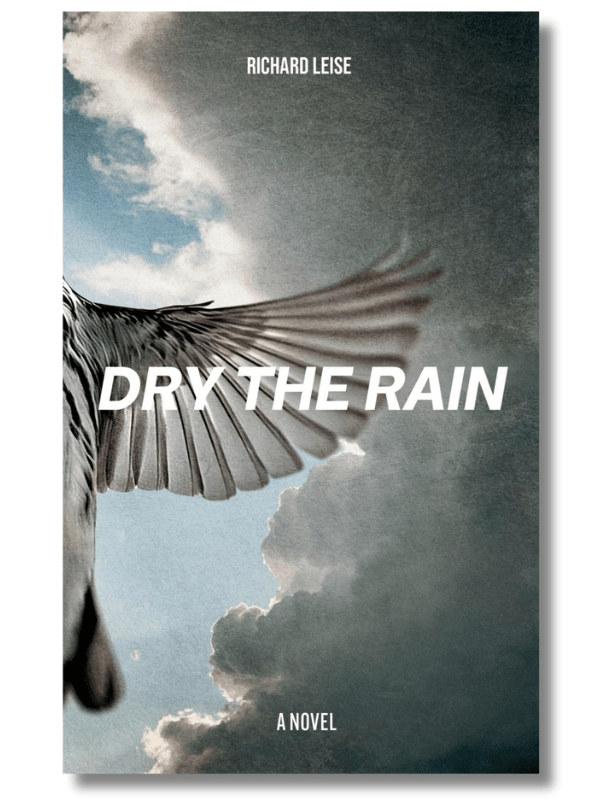Dry the Rain
by Richard Leise
Genre: Literary Fiction
ISBN: 9798991761413
Print Length: 228 pages
Publisher: Picket Fire
Reviewed by Melissa Suggitt
He asked her to dry the rain—and somehow, impossibly, she survived him.
There are books that beg to be understood and books that dare you to try. Dry the Rain belongs firmly in the latter category. Stark, disjointed, and uncomfortably honest, this is not a story told, it’s a story survived.
In it, a teenage girl is abducted, imprisoned in a backyard cellar, and forced to live within the rules of a delusional man who both tortured and infantilized her. But this isn’t a rescue story. This is the aftermath, told in jagged pieces and halting breaths, from the only place she was ever allowed to be safe: her own mind.
The world knows her as “Mallory,” the fictionalized version of herself from the TV show created in the wake of her escape. But she doesn’t recognize Mallory. “Mallory doesn’t do what I did. Mallory doesn’t feel what I feel. She is never too much, too angry, too broken.” Mallory is digestible. Marketable. She is the story people want. The narrator, by contrast, is the story people look away from. But this book doesn’t let you look away.
The title, Dry the Rain, is not metaphorical whimsy, it’s a literal demand. Her captor forces her to take towels out into the yard after storms and physically dry the rain from the grass, the patio furniture, the grill. It’s an impossible task, a chilling symbol of his control and cruelty. To fail was inevitable, and yet failure was punished. “Every time I took a step… I pushed underwater water right back up to the surface.” She’s set up to fail, again and again, in a world engineered to trap her—physically, mentally, emotionally. It’s a haunting depiction of psychological abuse.
What unfolds is not a linear plot, but a reckoning. She reflects on how the show smoothed out her jagged edges, sanitized her pain, and replaced complexity with clarity. And how the public, desperate for a clean narrative, swallows it whole. “They say I’m brave, because they don’t want to think about what it takes to live through something like this and not come out glowing.” The brilliance of the novel is in that tension between survival and spectacle, between what happened and what gets told.
Stylistically, this is not an easy read. The narrator’s voice is raw and scattered, as if her thoughts are unraveling just barely faster than the memories come back. At times, it’s hard to follow. I found myself pulled out of the story, adrift in sentence fragments and loops of thought; but the more I sat with it, the more I understood why. Of course her voice is fragmented. Of course it is hard to track. Years of captivity, of no one to talk to but herself, of needing to stay silent just to stay alive… it reshapes language. This is a voice born from survival, not storytelling. What’s in our head isn’t always made for paper, and in that, Leise achieves something rare: authenticity over readability.
The disjointed style, while intentional and thematically justified, may alienate some readers early on. But pushing through that discomfort is part of the experience. It forces you to sit with her story the way she lived it alone, unsure, and without a map.
Dry the Rain is a sharp rebuke to the way we treat survivors of sensational crimes like media property. It exposes the circus, the voyeurism, the myth-making. It reminds us that surviving doesn’t end when the cameras stop rolling. And in a literary landscape that often seeks resolution, it dares to say: some stories don’t end. They echo.
This one echoed in me. And I think it will for a long time.
Thank you for reading Melissa Suggitt’s book review of Dry the Rain by Richard Leise! If you liked what you read, please spend some more time with us at the links below.
The post Book Review: Dry the Rain by Richard Leise appeared first on Independent Book Review.
